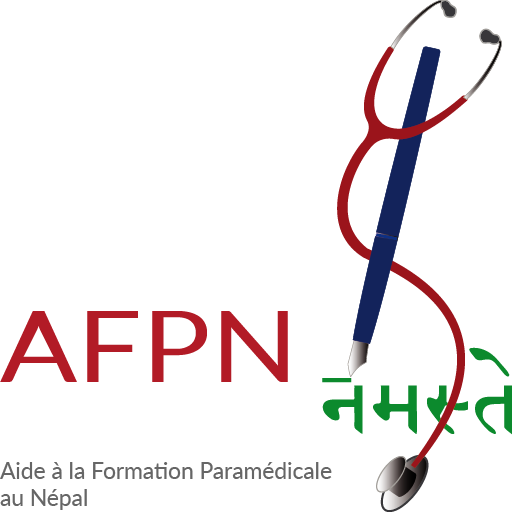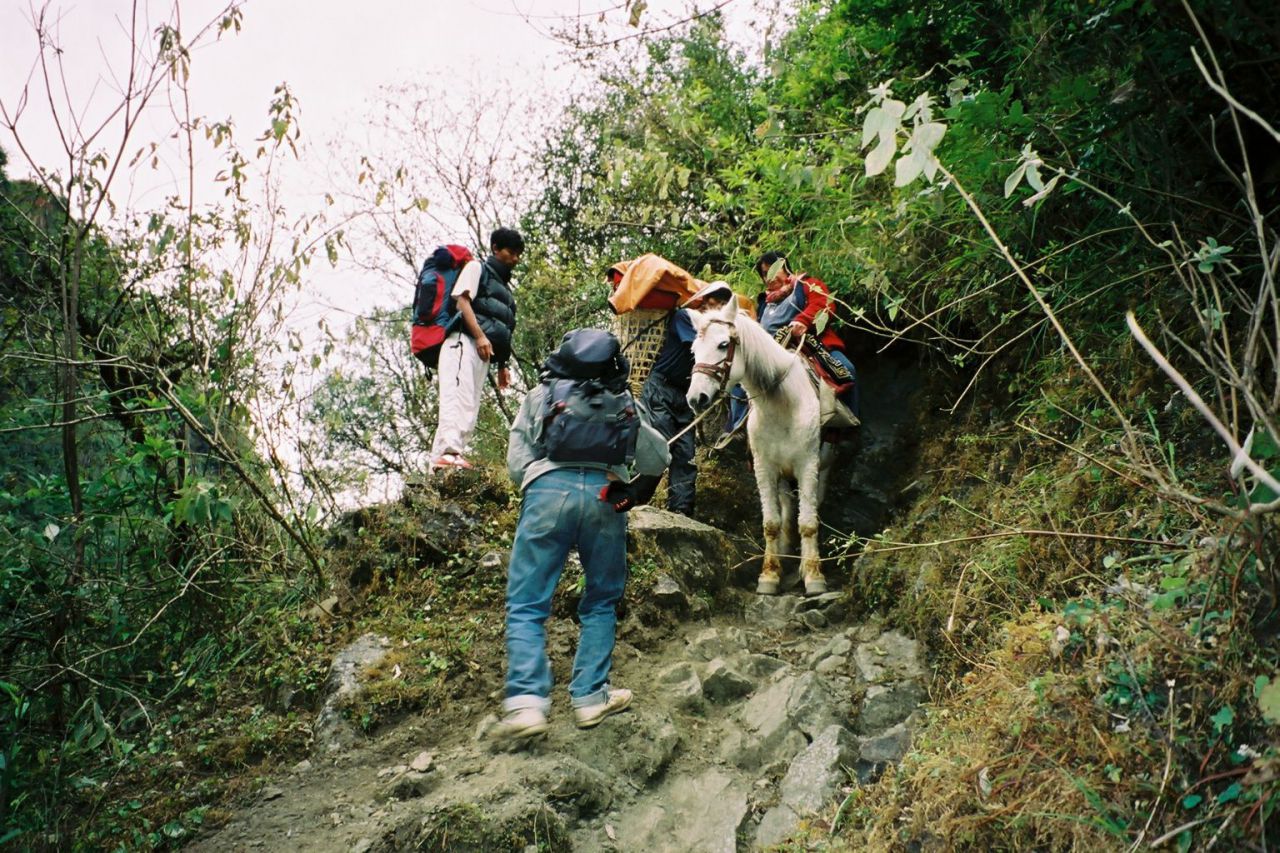WELCOME 

The purpose of the Association « Aid to Paramedical Training in Nepal » (Aide à la Formation Paramédicale au Népal) is to improve the state of health of the populations of the remote Himalayan valleys,
- by awarding study grants for the training of nursing staff,
- by contributing to the construction of dispensaries, the financing of their equipment and/or the remuneration of health personnel,
- more generally, by making a contribution to any health development program in Nepal.
HISTORY
Nepal is a Himalayan country renowned for the beauty of its high peaks and the warm welcome of its people.
However, it is a poor, very under developed country whose population lives in dangerously unhygienic conditions.
Cities certainly have modern neighborhoods ; however, in the vast majority of villages, electrical equipment, when it exists, is rudimentary, and there is no running water ; latrines are not yet present everywhere.
.

Indeed, the steep terrain presents a considerable hindrance to the development of remote valleys: with the exception of the main roads, travel and transport are done on foot or on horseback.
The diseases are mainly infectious: diarrhea, bronchial illnesses, tuberculosis, leprosy, secondary infections of wounds, infant malnutrition and, when nutrition improves, diabetes.
Except in urban centers, the health system is based on dispensaries scattered throughout the country. But the nursing staff, who originate from the most developed areas, are reluctant to stay in remote locations. Whereas those young people who come from remote valleys are from poor farming families who lack the wherewithal to finance the kind of studies necessary to become a healthcare professional.
The country’s economic situation is not great. Its main resource is agriculture and the country survives thanks to the revenues of its overseas workers (mainly in the Emirates and Japan). Poor development gave rise in 1996 to a combustible political situation which culminated in 2006 with the end of the monarchy and the introduction of democracy. Despite the very challenging situation which persists, Nepalese citizens who care about development continue courageously to work there.
WHO ARE WE ?
The association was created in 1992 on the initiative of Doctors Jean-Paul Hoff and Robert Eberlé, doctors from Strasbourg (France), after they had undertaken a hiking trip in the Kali-Gandaki valley.
Although amazed by the beauty of the landscapes and the warm welcome of the inhabitants, they were moved by the poverty of the living conditions of the latter. Wishing to improve the state of health of the populations, they decided to promote the training of local nurses by financing the training of young people from remote areas who wanted to work there. Because they were aware of her local knowledge, they consulted Dr Françoise Halbwachs who was back from her second year-long stint at the Tatopani Dispensary.
Based in Bas-Rhin (France), the association is governed by local law. All of its members are volunteers. The members of the board of directors are elected for 6 years, and this board is renewed by 1/3 every 2 years.
The implementation of the program is based on a network of Nepalese correspondents able to “recruit” candidates, distribute scholarships and monitor students.
Our partners are Mrs Doctor Clotilde Gauchan-Bernard, who worked in Tatopani in 1987 and who has lived in Nepal since, as well as Mr Badri Bahadur Maskey, in Gorkha.
IN PRACTICE
In France, the AFPN
- raises funds,
- organizes or participates in cultural, visual and/or taste events,
- participates in inter-associative forums.
In Nepal, the AFPN
- finances scholarships for young people (girls or boys) in different schools in the country (Jiri, Gorkha, Damauli),
- contributed in whole or in part to the financing of the construction of the dispensaries of Lapu and Paudwar,
- contributed to the financing of the operation of the dispensaries of Gumda and Lapu until 2015 and Pauduwar until 2016,
- contributed to the implementation of a sanitation program for the Gorkha water catchment area through the construction of latrines (with the help of the Bas-Rhin General Council and the Alsace Region),
- participated in the construction of the Maskichhap water supply network, in partnership with the Aleaugémeau association.
AFPN is a member of the inter-associative collective Humanis
